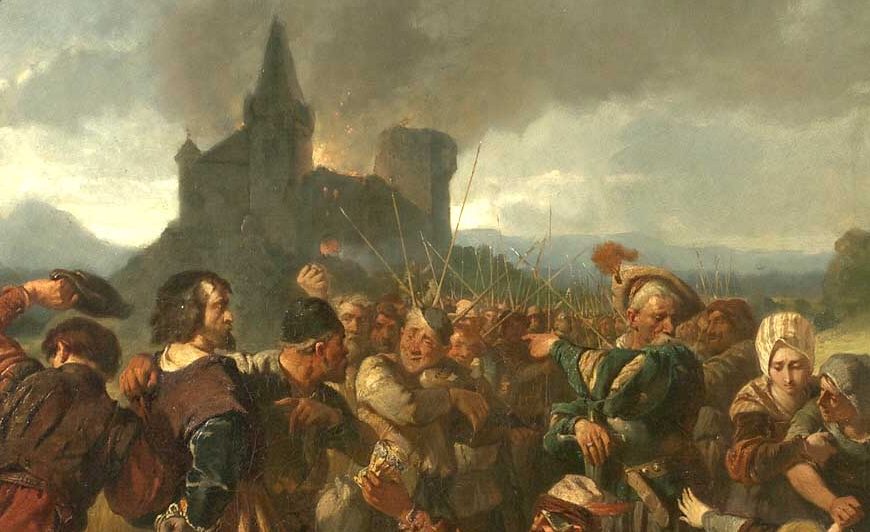Review of Summer of Fire and Blood: The German Peasants’ War by Lyndal Roper (Basic Books, 2025)
The largest revolt in Western Europe prior to the French Revolution was the German Peasants’ War of 1525. This uprising, transpiring five hundred years ago, saw peasants and their political allies seizing upon the radical implications of Martin Luther’s theology in an attempt to undercut the hierarchical social order of early modern Germany. The peasants’ ambitions were ultimately crushed, as German princes managed to quell the unrest with military force.
Lyndal Roper, the Regius professor of history at Oxford, is commemorating the quincentenary of the German Peasants’ War with the release of a new interpretation of the event, Summer of Fire and Blood. Already the author of several books on the Reformation, including two on Luther, Roper offers up the first major historical account of the war since the fall of the Berlin Wall.
Roper recognizes that she is intervening into a historiographical controversy that is “more than just an academic matter” and rather a “public issue” in Germany. Part of the reason for the lull in writing on the German Peasants’ War is the divergence in interpretations of the event inherited from the Cold War rivalry between the German Democratic Republic and Federal Republic of Germany. In the West, the Peasants’ War had been portrayed as a primordial German effort to establish fundamental human rights, whereas in the East, Marxist-Leninist authors envisioned it as a class conflict driven by the teleological necessities of history’s forward march toward socialism. Roper aims to transcend this “highly politicised historiography” and forge a new account of…
Auteur: Daniel Colligan

